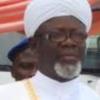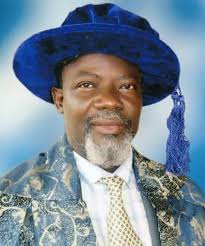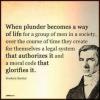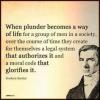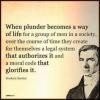- Home /
- Leadership
Leadership
You are visitor n° 




 Click here- https://ref.paid4clout.com/solomon2day
Click here- https://ref.paid4clout.com/solomon2day
Prime Minister, Thaksin Shinawatra of Thailand/ / Lieutenant General Suharto of Indonesia
The Prime Minister of Thailand between 2001 and 2006,Prime Minister, Thaksin Shinawatra of Thailand mismanaged and frittered away the country's resources running into bilions.
Rhe country's Assets Examination Committee indicted him for corruption and other illegal acts, including becoming extraordinarily wealthy after five(5) years in governance.
Shinawatra went on exile to Britain, when corruption charges were about to be filed against him. Whie, sojourning in Britain, he bought the Manchester City Footbal Club for $168 million.
General Suharto ruled Indonesia between 1967 and 1998.
He was at the lem of affairs for 31 years, a period he was discovered to have stolen the country's funds runnning into billions of dollars.
Faced with corruption charges against him, General Suharto was hospitalized after charges of corruption against him were made public.
His son, Tommy Suharto was convicted for corruption, in addition to another case of the murder of a Judge who had earler convicted him for corruption.
Attributes of Leadership 1 ( Integrity, Sincerity and Honesty) / Frederick Chiluba of Zambia/ Attributes of Leadership 2 /Fairness and Impartiality
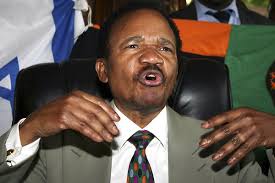 Frederick Chiluba ruled Zambia between 1991 and 2001.
Frederick Chiluba ruled Zambia between 1991 and 2001.
Chiluba failed in his bid to run for a third term, even though he looted his country's treasury.
$58 million out of his ill-gotten assets in England were identified, confiscated and ordered to be returned to Zambia to assist the disillusioned and impoverished citizenry.
 Unnecessary criticism and condemnation by a leader, even though discreet inquiry reveals that what would aid good governance is not in place, are set backs.
Unnecessary criticism and condemnation by a leader, even though discreet inquiry reveals that what would aid good governance is not in place, are set backs.
Unguarded remarks , utterances and reckless statements and comments amplifies the leadership abilities of an individual, positively or negatively.
Sadly, the trend among leaders in most climes, is to take position on sensitive issues without thoughtful analysis of available facts.
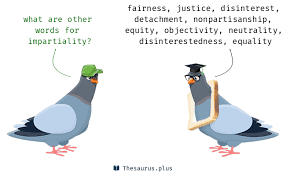 Indeed, paying attention to details and aspects, considered to be irrelevant ensures a very high degree of intelligent fairness that is essential for success in leadership.
Indeed, paying attention to details and aspects, considered to be irrelevant ensures a very high degree of intelligent fairness that is essential for success in leadership.
General Augusto Pinochet of Chile / Attributes of Leadership 3
 In 1973, General August Pinochet facilitated a coup d'etat, in which the Socialist President, Salvador Allende was murdered.
In 1973, General August Pinochet facilitated a coup d'etat, in which the Socialist President, Salvador Allende was murdered.
In 1990, when General Pinochet ended his rule, the country's treasury had been greatly depleted.
He passed on to glory at the age of 91 on the 10 December, 2006, with charges of corruption trailing his death.
Courage, Self Confidence and Decisiveness
 Courage : Courage is the state of mind of an individual, in times of danger and difficulities, with firmness and stability as guides.
Courage : Courage is the state of mind of an individual, in times of danger and difficulities, with firmness and stability as guides.
It also involves the display of visible caution against avoidable risks.
The individual's action revolves on strength of character, adequate to surmount the effects of fear, which is relegated to the background.

Self-Confidence : Self-Confidence is the belief in one's abilities to accomplish tasks. An individual rely solely on his or her strength to successfully complete an activity without recourse to external influences.

Decisiveness : Decisiveness involves the ability to take decisions promptly and permanently, without resort to procrastination or contemplation.
An individual does not reverse his or her decisions once taken.
Ferdinand and Imelda Marcos of Philippines / / Attributes of Leadership 4-Knowledge
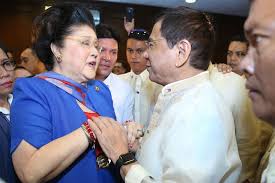 Philippines, the country was among the poorest countries in the world.
Philippines, the country was among the poorest countries in the world.
Between 1965 and 1986, during which Marcos called the shots, he alongside his wife frittered away billions of the country's money meant for governance.
Imelda the first lady was the proud owner of the largest women wardrobe in the world, which featured five thousand(5,000) pairs of laides' shoes.
The President and his wife bought mansions in major cities of the world and invested the top rated multi-national companies around the globe, even though the citizens of Philippines remained in the firm grip of hunger and poverty.
When Marcos and his wife were forced out of office, unspecified number of corruption cases were brought against them.
 Virtually everything under the sun is simple, once and individual knows and understands all the facts about the issue(s)question.
Virtually everything under the sun is simple, once and individual knows and understands all the facts about the issue(s)question.
The Teacher goes about his assigned duties professionally, displaying expertise and courage where necessary.
This is because he possesses absolute knowledge of the eventual result of each action.
An individual who knows what is right from what is wrong, is without doubt, having the capacity and the ability to guide others transparently.
Attributes of Leadership 5-Experience / / President Gnassingbe Eyadema of Togo
 Experience is the definite foundation for courage in addressing crucial and fundamental matters in ensuring a background of success in solving a great number of relatively unimportant matters
Experience is the definite foundation for courage in addressing crucial and fundamental matters in ensuring a background of success in solving a great number of relatively unimportant matters
It also includes decision making skills devoid of delay and initiative in implementing crucial decisions revolve on the wealth of experience an individual has garnered over time.
Experience is the basis of all that would be successful.
 In 2002, President Gnassinbe Eyadema of Togo, ordered the release of 5000 prisoners.
In 2002, President Gnassinbe Eyadema of Togo, ordered the release of 5000 prisoners.
174 of the prisoners were from Lome Civil Prisons, 82 from Kara in the North and 62 from Aneho in the South.
Although a cross section of Togolese citizens insisted that most of those freed were political detainees, government stressed that they were common law offenders.
President Eyadema took over the reigns of power in a coup in 1967.
The Full Text of Chief(Dr.)Olusegun Obasanjo's Open Letter to President Muhammadu Buhari
 I am constrained to write to you this open letter. I decided to make it an open letter because the issue is very weighty and must be greatly worrisome to all concerned Nigerians and that means all right-thinking Nigerians and those resident in Nigeria. Since the issue is of momentous concern to all well-meaning and all right-thinking Nigerians, it must be of great concern to you, and collective thinking and dialoguing is the best way of finding an appropriate and adequate solution to the problem. The contents of this letter, therefore, should be available to all those who can help in proffering effective solutions for the problem of insecurity in the land.
I am constrained to write to you this open letter. I decided to make it an open letter because the issue is very weighty and must be greatly worrisome to all concerned Nigerians and that means all right-thinking Nigerians and those resident in Nigeria. Since the issue is of momentous concern to all well-meaning and all right-thinking Nigerians, it must be of great concern to you, and collective thinking and dialoguing is the best way of finding an appropriate and adequate solution to the problem. The contents of this letter, therefore, should be available to all those who can help in proffering effective solutions for the problem of insecurity in the land.
One of the spinoffs and accelerants is the misinformation and disinformation through the use of fake news. A number of articles, in recent days, have been attributed to me by some people who I believe may be seeking added credence and an attentive audience for their opinions and view-points. As you know very well, I will always boldly own what I say and disown what is put into my mouth. But the issue I am addressing here is very serious; it is the issue of life and death for all of us and for our dear country, Nigeria. This issue can no longer be ignored, treated with nonchalance, swept under the carpet or treated with cuddling glove. The issue is hitting at the foundation of our existence as Nigerians and fast eroding the root of our Nigerian community. I am very much worried and afraid that we are on the precipice and dangerously reaching a tipping point where it may no longer be possible to hold danger at bay. Without being immodest, as a Nigerian who still bears the scar of the Nigerian civil war on my body and with a son who bears the scar of fighting Boko Haram on his body, you can understand, I hope, why I am so concerned. When people are desperate and feel that they cannot have confidence in the ability of government to provide security for their lives and properties, they will take recourse to anything and everything that can guarantee their security individually and collectively.
For over ten years, for four of which you have been the captain of the ship, Boko Haram has menacingly ravaged the land and in spite of government’s claim of victory over Boko Haram, the potency and the activities of Boko Haram, where they are active, remain undiminished, putting lie to government’s claim. The recent explanation of the Chief of Army Staff for non-victory due to lack of commitment and lack of motivation on the part of troops bordering on sabotage speaks for itself. Say what you will, Boko Haram is still a daily issue of insecurity for those who are victimised, killed, maimed, kidnapped, raped, sold into slavery and forced into marriage and for children forcibly recruited into carrying bombs on them to detonate among crowds of people to cause maximum destructions and damage. And Boko Haram will not go away on the basis of sticks alone, carrots must overweigh sticks. How else do you deal with issues such as only about 50% literacy in North-East with over 70% unemployment?
Herdsmen/farmers crises and menace started with government treating the issue with cuddling glove instead of hammer. It has festered and spread. Today, it has developed into banditry, kidnapping, armed robbery and killings all over the country. The unfortunate situation is that the criminality is being perceived as a ‘Fulani’ menace unleashed by Fulani elite in the different parts of the country for a number of reasons but even more, unfortunately, many Nigerians and non-Nigerians who are friends of Nigeria attach vicarious responsibility to you as a Fulani elite and the current captain of the Nigeria ship. Perception may be as potent as reality at times. Whatever may be the grievances of Fulanis, if any, they need to be put out in the open and their grievances, if legitimate, be addressed; and if other ethnic groups have grievances, let them also be brought out in the open and addressed through debate and dialogue.
The main issue, if I may dare say, is poor management or mismanagement of diversity which, on the other hand, is one of our greatest and most important assets. As a result, very onerous cloud is gathering. And rain of destruction, violence, disaster and disunity can only be the outcome. Nothing should be taken for granted, the clock is ticking with the cacophony of dissatisfaction and disaffection everywhere in and outside the country. The Presidency and the Congress in the US have signalled to us to put our house in order. The House of Lords in the UK had debated the Nigerian security situation. We must understand and appreciate the significance, implication and likely consequences of such concerns and deliberations.
No one can stop hate speech, violent agitation and smouldering violent agitation if he fans the embers of hatred, disaffection and violence. It will continue to snowball until it is out of control. A stitch in time saves nine, goes the old wise saying.
With the death of Funke, Chief Fasoranti’s daughter, some sympathetic Nigerian groups are saying “enough is enough”. Prof. Anya, a distinguished Nigerian merit Laureate, has this to say “We can no longer say with certainty that we have a nation”. Niger-Delta leaders, South-Eastern leaders, Middle-Belt leaders and Northern Elders Forum have not remained quiet. Different ordinary Nigerians at home and abroad are calling for different measures to address or ameliorate the situation. All the calls and cries can only continue to be ignored at the expense of Nigerian unity, if not its continued existence.
To be explicit and without equivocation, Mr. President and General, I am deeply worried about four avoidable calamities:
1. abandoning Nigeria into the hands of criminals who are all being suspected, rightly or wrongly, as Fulanis and terrorists of Boko Haram type;
2. spontaneous or planned reprisal attacks against Fulanis which may inadvertently or advertently mushroom into pogrom or Rwanda-type genocide that we did not believe could happen and yet it happened.
3. similar attacks against any other tribe or ethnic group anywhere in the country initiated by rumours, fears, intimidation and revenge capable of leading to pogrom;
4. violent uprising beginning from one section of the country and spreading quickly to other areas and leading to dismemberment of the country.
It happened to Yugoslavia not too long ago. If we do not act now, one or all of these scenarios may happen. We must pray and take effective actions at the same time. The initiative is in the hands of the President of the nation, but he cannot do it alone. In my part of the world, if you are sharpening your cutlass and a mad man comes from behind to take the cutlass from you, you need other people’s assistance to have your cutlass back without being harmed. The mad men with serious criminal intent and terrorism as core value have taken cutlass of security. The need for assistance to regain control is obviously compelling and must be embraced now.
A couple of weeks ago at a public lecture, I had said, among other things, that:
“In all these issues of mobilisation for national unity, stability, security, cooperation, development, growth and progress, there is no consensus. Like in the issue of security, government should open up discussion, debate and dialogue as part of consultation at different levels and the outcome of such deliberations should be collated to form inputs into a national conference to come up with the solution that will effectively deal with the issues and lead to rapid development, growth and progress which will give us a wholesome society and enhanced living standard and livelihood in an inclusive and shared society. It will be a national programme. We need unity of purpose and nationally accepted strategic roadmap that will not change with whims and caprices of any government. It must be owned by the citizens, people’s policy and strategy implemented by the government no matter its colour and leaning.
Some of the groups that I will suggest to be contacted are: traditional rulers, past heads of service (no matter how competent or incompetent they have been and how much they have contributed to the mess we are in), past heads of para-military organisations, private sector, civil society, community leaders particularly in the most affected areas, present and past governors, present and past local government leaders, religious leaders, past Heads of State, past intelligence chiefs, past Heads of Civil Service and relevant current and retired diplomats, members of opposition and any groups that may be deemed relevant.”
The President must be seen to be addressing this issue with utmost seriousness and with maximum dispatch and getting all hands on deck to help. If there is failure, the principal responsibility will be that of the President and no one else. We need cohesion and concentration of effort and maximum force – political, economic, social, psychological and military – to deal successfully with the menace of criminality and terrorism separately and together. Blame game among own forces must be avoided. It is debilitating and only helpful to our adversary. We cannot dither anymore. It is time to confront this threat headlong and in a manner that is holistic, inclusive and purposeful.
For the sake of Nigeria and Nigerians, I pray that God may grant you, as our President, the wisdom, the understanding, the political will and the courage to do what is right when it is right and without fear or favour. May God save, secure, protect and bless Nigeria. May He open to us a window of opportunity that we can still use to prevent the worst happening. As we say in my village, “May God forbid bad thing”.
OLUSEGUN OBASANJO
July 15, 2019
Source : Kehinde Akinyemi
Special Assistant Media
Attributes of leadership 6-Tact / /Mario Masuku of Swa
 In 2002, Mario Masuku, leader of the Peoples United Democratic Movement(PUDEMO) advocated for the abolition of the absolute monarchy in Swaziland, while canvassing for a constitutional government as a suitable replacement.
In 2002, Mario Masuku, leader of the Peoples United Democratic Movement(PUDEMO) advocated for the abolition of the absolute monarchy in Swaziland, while canvassing for a constitutional government as a suitable replacement.
Masuku, then 51 years old, made this call, moment after he was freed over charges of treason. He had spent 12 months in the high security prison ''Tinkhundla''.
At this period, King Mswati ll was the Monarch of Swaziland.
Political parties and political demonstrations were illegal, then, in Swaziland.
It is Unconstitutional for Lawmakers to Determine their Salaries-Supreme Court of Uganda
THE REPUBLIC OF UGANDA
IN THE SUPREME COURT OF UGANDA AT KAMPALA
[CORAM: KATUREEBE, CJ; ARACH-AMOKO, OPIO-AWERI,
MWONDHA, MUGAMBA, NSHIMYE AND TUMWESIGYE; JSC]
CONSTITUTIONAL APPEAL NO. 08 OF 2016
BETWEEN
PARLIAMENTARY COMMISSION::::::::::::::::::APPELLANT
AND
MWESIGYE WILSON:::::::::::::::::::::::::::::::::RESPONDENT
[An appeal from the Judgment of the Constitutional Court (Kavuma DCJ, 15 Mwangusya, Buteera, Tibatemwa and Egonda-Ntende; JJA/JCC) dated 23rd November, 2015 in Constitutional Petition No.31 of 2011.)
JUDGMENT OF THE COURT
This is an appeal by the Parliamentary Commission, the appellant, against the decision of the Constitutional Court dated the 23rd November, 2015, in Constitutional Petition No. 31 of 2011, filed by Wilson Mwesigye, the respondent, declaring that:
"...Section 5 of the Parliamentary (Remuneration of Members) Act, is unconstitutional and contravenes Article 93 of the 25 Constitution. Such declaration takes effect from the date of this judgment. Henceforth no emoluments of members of Parliament shall be determined by Parliament in disregard of Article 93 of the Constitution."
The appellant was aggrieved by this declaration and appealed to this Court on the grounds that:
- The Constitutional Court erred in law and in fact in holding that Section 5 of the Parliamentary (Remuneration of Members ofParliament) Act contravened Article 93 of the Constitution.
- The Constitutional Court erred in law and fact when in interpreting the effect of Article 93 of the Constitution segregated it from the other relevant provisions of the
Constitution, namely Articles 84,154 and 155.
Background
The respondent filed a petition in the Constitutional Court against the appellant and the Attorney alleging inter alia, that Parliament had, on numerous occasions, increased the emoluments of its members by resolution using Section 5 of the Parliamentary (Remuneration of Members of Parliament) Act. He contended that this was contrary to Article 93 of the Constitution, which requires such action to be originated by a bill or a motion on behalf of Government.
The respondent prayed for a declaration that Section 5 of the Parliamentary (Remuneration of Members of Parliament) Act, is unconstitutional and should be struck off.
The appellant and the Attorney General, its co- respondent, opposed the petition contending that the Parliamentary (Remuneration of Members of Parliament) Act is in conformity with Article 85 of the Constitution. They contended that the Executive cannot within the law veto a determination of the emoluments of Members of Parliament once so determined. They added that the Act ensures the independence of the Legislature and is in accordance with the 10 doctrine of separation of powers. They averred that petition was therefore frivolous and vexatious and should be dismissed.
The issue agreed upon for determination by the Constitutional Court was, whether section 5 of the Parliamentary (Remuneration of Members of Parliament) Act, Cap 259 is unconstitutional. And, if so, is what remedy is available to the respondent.
The Constitutional Court answered the issue in the affirmative and made the aforestated declaration, hence this appeal.
Representation
The appellant was represented by Mr. Solomon Kirunda, its Principal Legal Officer, while Mr. Mukasa Lugalambi continued to represent the respondent. They filed written submissions in which they argued both grounds together. Court allowed them to make brief oral highlights on the hearing day. We shall adopt the same order in dealing with the appeal.
Submissions by Counsel
Mr. Kirunda submitted that the learned Justices of the Constitutional Court had misconstrued the import of Section 5 of the Act and misapplied it, and thereby reached the wrong decision that
the section is unconstitutional. According to him, the section is constitutional and poses no problem if properly applied. He contended that where Section 5 is read without bringing it into conformity with Article 93, then the fault is that of the people who misapplied the section, but not the Section itself.
Regarding Article 93, Mr. Kirunda contended that the learned Justices of the Constitutional Court had interpreted the said article without taking into account the other articles of the Constitution that are relevant to the question of emolument namely, Article 85 which is the basis for emolument of members of Parliament and Articles 154,155 and 156 which provide for the procedure for appropriation of funds from the Consolidated Fund. He submitted that all these articles support each other. He argued that Article 93 was read in isolation and section 5 was misconstrued.
Mr. Kirunda submitted that in the process, the learned Justices of the Constitutional Court erred in reaching their conclusion that Parliament was contravening Article 93 of the Constitution in determining the emolument of members of Parliament by excluding the Executive. He pointed out that the resolution of 2001 clearly showed that it was moved by Hon. Isaac Musumba , a member of the Executive and not by a private member.
Mr. Kirunda prayed that the appeal be allowed and the judgment of the Constitutional Court be set aside.
Mr. Lugalambi opposed the appeal and fully supported the decision of the Constitutional Court. He submitted that the evidence on record clearly showed that Parliament has not always increased the emoluments of the members of Parliament that is chargeable on the Consolidated Fund and that the procedure prescribed under Article 93 of the Constitution of first presenting a resolution or a motion on behalf of the Execute has not always been followed. He stated that this has been the practice as shown by the resolution that was passed on behalf of the Parliamentary Commission and not the Executive, although the mover, Hon. Musumba was a Minister.
He submitted further that the resolution was alive to Article 82 and 85 but was silent on article 93.He further contended that the effect is of failing to state in Section 5 of the Act that the increment can only be done by invoking Article 93 is actually what resulted in the increments being made by Parliament without due process.
He submitted that counsel for the appellant has suggested in his submission to this Court that no resolution can be passed by Parliament for the purpose of the increment of emoluments of members of Parliament if it does not emanate from the Executive, but did not adduce any evidence to the contrary to support that assertion. Mr. Lugalambi went on to say that no wonder the Attorney General had seen it right not to appeal the decision of the Constitutional Court.
He contended that even if Parliament is authorised under Article 85 of the Constitution to determine their own emoluments, it is not an open cheque to obtain whatever amount they desire. He submitted that Article 93 is thus the necessary check and balance to ensure that the Consolidated Fund is not raided without applying the appropriate mechanism.
He further contended that the Constitutional Court did not segregate Article 93 from the other relevant articles of the Constitution. He argued that the Constitutional Court was actually alive to all the relevant articles and applied the cardinal rule of Constitutional interpretation laid out in P.K.Ssemwogerere vs Attorney General, Constitutional Appeal No. 1 of 2002 (SC), as can be discerned from their judgment.
In conclusion, Mr. Lugalambi submitted that the appellant has not proved any of the grounds of appeal, he therefore maintained his prayer that the appeal should be dismissed with costs to the respondent and the money illegally obtained from the Consolidated Fund should be refunded.
Consideration of the appeal by Court
The allegation by the respondent was that the practice by Parliament of increasing the emoluments of its members by resolution, using the impugned Section 5 of the Act, was rampant and that this contravened Article 93 of the Constitution. The response by the appellant was that Parliament was empowered to increase the emoluments of its members by Article 85 of the Constitution and the Executive had no right to veto it.
Consequently, right from the very beginning of the process of determining the Petition, the Constitutional Court noted, and rightly so, that the pleadings, the affidavits and the scheduling conference indicated that it was an agreed fact that Parliament had, in the past acted independently in making provision for the emoluments of members of Parliament.
Secondly, the Constitutional Court also took note of the impugned resolution passed by Parliament in 2001, which showed how Parliament had approached the subject. The only dispute before the Constitutional Court was therefore, whether, when all the provisions of the Constitution that are relevant to the matter are read together, they render the actions of Parliament unconstitutional or not. The relevant provisions are Articles 85 and 93 of the Constitution. The Constitutional Court also considered Section 5 of the Act. After setting them out, this is how the Constitutional Court resolved the issue in its judgment:
“25. It is not in dispute that Parliament is in control of the purse so to speak and must authorise all expenditure of public funds, especially from the consolidated fund. The Constitution has provided for an elaborate system of checks and balances between the separate arms of State in the management of public resources without leaving it to only one. Each organ has been given its role to ensure that there is accountability and transparency. No one organ is entirely on its own. However, in order to secure the independence of one organ against the other, checks and balances have been provided.
26. For instance there are detailed provisions in Articles 152 to 156 about the creation and management of the consolidated fund and how funds therein are to be appropriated. The consolidated fund is managed by the Executive arm of Government but it has no authority to spend a single cent except with consent of Parliament. The Executive must have the authority of Parliament to raise and collect taxes and non-tax revenue.
Whereas Article 85 authorises. Parliament to determine is the emoluments of its members that is not the only Constitutional provision that comes into play on the subject. For as long as that determination was going to be a charge upon the consolidated fund, Article 93 comes into play, especially in light of its mandatory provisions. It would not take away the authority of Parliament to determine the emoluments of its members but in so doing it must do so in conformity with Article 93 of the Constitution. The motion or bill the subject of the emoluments of the members of Parliament must be 25 brought, not on behalf of the Parliamentary Commission but on behalf of Government. We know that the head of Government is the President of Uganda under Article 98(1) which would mean that the Government in this case refers to the Executive arm of Government.
28.Article 93 bars Parliament from proceeding on either a bill or a motion unless that bill or motion is introduced by Government in a specific number of cases which include, ‘(a) (ii) the imposition of a charge on the Consolidated Fund or other public fund of Uganda or the alteration of any such charge otherwise by reduction.
29.The Constitution specifically bars Parliament from considering bills or motions which would include resolutions that impose a charge upon the Consolidated Fund or alteration of such existing charge other than by way of reduction. Emoluments of Members of Parliament are a charge upon the Consolidated Fund. It follows that Article 85 must be read together with Article 93 in order to achieve a harmonious reading of the Constitution that allows both provisions to take effect and achieve the greater good of an accountable Government. Where in the past Parliament has acted in disregard of Article 93, and the Executive has acquiesced to that position, both have done so in breach of the Constitution.
30. Much as Parliament is Constitutionally empowered to determine the emoluments of its members, the bill or motion or resolution which is the subject of such emoluments must originate from the Government, and Parliament would then be empowered to consider the same and determine the emoluments of the honourable Members of Parliament. This is the only constitutionally permissible route for Parliament to determine the emoluments of its members. In that regard, much as the Parliament can amend, by resolution, under Section 5 of the Parliament (Remuneration of Members) Act, the Schedule to the Act which contains the emoluments of members, such resolution must be on a motion brought on behalf of Government to Parliament. This is the only way to read Section 5 of the Act to bring it into compliance with the Constitution. Left on its own Section 5 of the Act is unconstitutional.
31...
32.Since Section 5 of the Parliament (Remuneration of Members) Act has in the past been read, without bringing it in conformity with Article 93 of the Constitution, We are satisfied that it is null and void to the extent of its inconsistency with Article 93 of the Constitution. We would allow a declaration in those terms.”
It is clear from the above quoted paragraphs that the criticism leveled 25 against the Constitutional Court that Parliament segregated article 93 from the other relevant provisions of the Constitution is baseless. The Constitutional Court was actually alive to all the relevant articles of the Constitution on the matter, namely article 85 that authorises Parliament to determine the emoluments of its members and Articles 152 to 156 in respect of the creation and management of the Consolidated Fund appropriation of funds.
The Constitutional Court was also alive to the restriction on financial matters imposed under Article 93 of the Constitution. The Constitutional Court, while emphasising that Article 85 authorises Parliament to determine the emolument of its members, ruled that for as long as the emoluments are going to result into a charge on the Consolidated Fund, the bill or motion for increasing the emoluments must be brought on behalf of the Government and not the Parliamentary Commission. This finding was based on the interpretation of Articles 85 and Article 93 of the Constitution which in the relevant parts provide:
“85. Emoluments of members of Parliament
(1) A member of Parliament shall be paid such emoluments and such gratuity and shall be provided with such facilities as may be determined by Parliament.”
“93. Restriction on financial matters
Parliament shall not, unless the bill or the motion is introduced on behalf of Government— (a) Proceed upon a bill, including an amendment bill, that makes provision for any of the following—
ii) the imposition of a charge on the Consolidated Fund or other public fund of Uganda or the alteration of any such charge otherwise than by reduction.
iii)...
iv)...
(b) proceed upon a motion, including an amendment to a motion, the effect of which would be to make provision for any of the purposes specified in paragraph (a) of this article.”
(the underlining was added for emphasis)
The Constitutional Court held, and rightly so in our view, that the emoluments of members of Parliament are a charge on the Consolidated Fund and therefore, Articles 85 and 93 of the Constitution must be read together to achieve a harmonious reading of the Constitution which allows both provisions to take effect and achieve the greater good of an accountable Government.
The Constitutional Court applied the rule of harmony in P.K.Ssemwogerere vs Attorney General, Constitutional Appeal No.l of 2002 (SC), which is to the effect that, the whole Constitution has to be read together as an integral whole, with no particular provision destroying the other but rather each sustaining the other. No one provision is to be segregated from the others and to be considered alone, but all provisions bearing upon a particular subject are to be brought into view and to be interpreted so as to effectuate the greater purpose of the instrument.
The finding of the Constitutional Court was also based on the evidence that the respondent had adduced which showed that the resolution passed by Parliament in 2001 for the increase of the emoluments of members of Parliament was presented to Parliament by Hon. Isaac Musumba, who was acting for and on behalf of the Parliamentary Commission, not the Executive. The Constitutional Court emphasised that the head of Government is the President of Uganda under Article 98(1) of the Constitution, which means that the Government referred to in Article 93 of the Constitution is the Executive arm of Government. Although Hon. Musumba was a Minister and therefore part of the Executive at the material time, nevertheless, he had signed the impugned resolution on behalf of the Parliamentary Commission, not on behalf of Government.
The Constitutional Court stated as follows, regarding Section 5 of the Act:
“ Since section 5 has in the past been read, without bringing it into conformity with Article 93 of the Constitution, we are satisfied that it is null and void to the extent of its inconsistency with Article 93 of the Constitution. We would allow a declaration in those terms. ”
The Constitutional Court then proceeded to make the declaration complained of.
Section 5 of the Act reads:
“Amendment of Schedule
Parliament may, from time to time, by resolution, amend the Schedule to this Act.”
The schedule to the Act provides for the salaries and gratuities for members of Parliament.
The Constitutional Court found that much as Parliament can amend by resolution under section 5 of the Act, the Schedule to the Act which contains the emoluments of members of Parliament, such resolution must be brought on behalf of Government to Parliament. We agree with this finding.
In addition to that, it is important to bear in mind that there is one Consolidated Fund to which all monies of Uganda are deposited as per article 153 of the Constitution. It is the President who is charged with the responsibility of preparing or causing to be prepared, estimates of revenue and expenditure of Government to be laid before Parliament as per article 155 (1) of the Constitution. Article 155(2) states as fellows:
“The head of any self- accounting department, commission or organization set up under this Constitution shall cause 25 to be submitted to the President at least two months before the end of each financial year estimates of administrative and development expenditure and estimates of revenues of the respective department, commission, or organization for the following year.”
(the underlining was added for emphasis).
The Parliamentary Commission set up under article 87A of the Constitution must also follow this procedure. The purpose is that there is one financial authority in charge of revenues and expenditure, even though expenditure must be authorised by Parliament. Anybody who wants to create a charge on the Consolidated Fund must first inform the Government and Article 93 is meant to achieve that.
This is the only way to read Section 5 of the Act to bring it into compliance with the Constitution. Left on its own, Section 5 is unconstitutional.
This finding is in line with the principle of interpretation laid down by the Supreme Court in Attorney General vs. Salvatori Abuki, Constitutional Appeal No. 1 of 1998, followed in Foundation For Human Rights Initiative vs. Attorney General, Constitutional Appeal No 3 of 2009. It states that:
“In determining the constitutionality of a legislation, its purpose and effect must be taken into consideration. If the purpose of the Act is inconsistent with the provision of the Constitution, it shall be declared unconstitutional. Similarly, if the effect of implementing a provision of the Act is inconsistent with a provision of the Constitution, that provision of the Act shall be declared null and void ”
Clearly, the wording of section 5 of the Act allows Parliament to amend the Schedule to the Act without recourse to article 93 of the Constitution. This is inconsistent with the said provision of the Constitution. The Constitutional Court was therefore right in declaring the impugned section 5 of the Act as unconstitutional, and making the order complained of in this appeal.
The holding by the Constitutional Court is that the resolution for increase of emoluments must be moved on behalf of Government 15 since it would create a charge on the Consolidated Fund.
We find nothing wrong with the above findings. Our view is that the provision under article 93 of the Constitution is more about the entry- point when a motion, a bill or amendment that has the effect of an increase of the charge on the Consolidated Fund must be introduced 20 on behalf of Government and not Parliament. Thereafter, the rest of the appropriation process ably described by Mr. Kirunda under articles 152 to 155 come into play. It must pass through article 93.
It is evident that if section 5 of the Act is left on our statute books, it is bound to be used by Parliament to violate the Constitution. The 25 idea is that the appellant should not increase the emolument of members of Parliament in disregard of the mandatory requirement under article 93 because of articles 82 and 85 of the Constitution together with the impugned section 5 of the Act. The Constitutional Court therefore made the right decision and it cannot be faulted.
Dated at Kampala this 25th day of July, 2019.
...........................................................
In the result, we find no merit in this appeal and dismiss it accordingly. We award the costs of the appeal to the respondent.
Hon. Justice Katureebe,
CHIEF JUSTICE
.............................................................................................
Hon. Justice Arach-Amoko
JUSTICE OF THE SUPREME COURT
.....................................................................
Hon. Justice Opio -Aweri
JUSTICE OF THE SUPREME COURT
............................................................
Hon. Justice Mwondha
JUSTICE OF THE SUPREME COURT
.........................................................................................
Hon. Justice Mugamba
JUSTICE OF THE SUPREME COURT
Hon. Justice Nshimye
AG. JUSTICE OF THE SUPREME COURT
....................................
Hon. Justice Tumwesigye
AG. JUSTICE OF THE SUPREME COURT
Today’s Teachers are in the Profession to Keep Body and Soul Together-Prof. Olagoke / Prof. Sabitu Olagoke @ 63-10 November, 2019
Nigerians are unanimous in their clamor for the re-introduction of Teacher Training Colleges as part of the efforts to salvage the falling standard of education in the country from total collapse.
Indeed, a sizable number of teachers have overtime exhibited tendencies and behaviors not in line with the dictates of the noble profession, while pupils and students alike have emulated same.
In this interview, the Founder, Spiritual Head and Grand Imam of Shafaudeen-in-Islam Wordlwide, Prof. Sabitu Olagoke insists that present day teachers are in the noble profession for the purposes of survival not for the love of the profession. Excerpts :
Do you think the re-introduction of Teacher Training Colleges would play a significant role in salvaging the falling standard of education in Nigeria ?
The policy makers over the years in Nigeria have displayed a high level of over zealousness when it comes to adopting to adapt new trends in the areas of advancement in education.
They failed to look inwards, our cultural background and the needs of the society. The basic background that could be traced to 6–5–4 system of education, whereby the five years in the secondary school could be augmented with advanced level classes, before proceeding into the universities. This was far better mainly because it was effectively managed in terms of teachers and the facilities needed on ground. Some people may adduce this to the fewer number of schools and teachers as well as fewer population of students to cope with then.
The greatest advantages then, were the people’s appreciation of the value of education, the immediate opportunity for graduates to be absorbed from the labor market as well as the best discipline on offer as a necessary prerequisite that would enable seriousness in learning.
It was an era when boarding schools were facility laden with trustworthy house masters.
It was also a period when religious houses were sacred for the much needed vitamins of the fear of God for the teachers and the students.
However, with the advancement of education, it was good to discontinue the use of auxiliary teachers, most of whom were more matured and committed in the classrooms, than today’s graduates, most of whom are unhappy with the teaching profession, but for economic survival, take the teaching job to keep body and soul together.
The establishment of the Universal Primary Education(UPE) for which Teacher Training Colleges became popular, was a very good policy in the right direction.
The graduates were basically trained on the methodology of teaching in education, the preparation of lesson notes and the keeping of records in an environment of high level of discipline and respect for constituted authority with a high level of focus on building a happy home in which future leaders for the society in particular and nation as a whole must be brought up.
Graduates of the Teacher Training Colleges were fully committed to the profession and were always time conscious with respect to punctuality and regularity at work. They were always ready to be directed and managed by their Headmasters or Principals, whose instructions must be obeyed and who happened to be graduates of universities, most of whom took courses in education at the post graduate level, with Grade I and II qualifications in their kitty before acquiring university education.
Headmasters and Teachers were then role model parents who believed in working for government for good, holding tenaciously to the principles of transparency and accountability.
Government would have left this phase of our educational institutions when creating the Colleges of Education, rather than phasing it out.
They ought to have restricted the activities of graduates of Teacher Training Colleges to the grassroots level of Primary Schools, while those in Colleges of Education would have been trained for the Junior Secondary Schools in the 6–3–3–4 education system.
While graduates of universities and probably Polytechnics at the HND level all with technical bias towards specific vocations, with some knowledge in entrepreneurship studies would have been prepared to manage our Secondary schools. With this arrangement based on relevant disciplines and subjects, the instructional facet of all segments of our educational levels would have been appropriately captured and fixed. This is because graduates of each sector of our lines of educational development and structure have good opportunities of resorting to, based on their capacity and capability at the time, apprenticeship for artisan ship, vocation and entrepreneurship for possible self job creation ability and promotion of employment opportunities for others, to lessen the pressure on graduates hustle for white collar jobs.
The mistake made in the phasing out of the Teacher Training Colleges, is the present mistake that is about to be repeated in the case of the Technical Colleges, which would have served the nation if well funded and equipped in the following areas :
- Foundational step to engineering and other professional technical appreciation needs.
- It would have been a technical forum to train our artisans, who control our economy on the need for skill acquisition and proficiency needs. The class would have been for the development of initiative, innovation and creativity as and a center for talent discovery.
Generally, Nigeria’s policymakers, most especially in the areas of education, must always take cognizance of our background and our needs for our graduates to be relevant directly in the areas of community service, society development and nation building.
After all, all our professional bodies have family pyramid structure. For example, craftsmanship, technicians, technologists and corporate membership. All of them are yet to take care of sectors of artisan ship for proficiency needs while their fellow cadres are yet to be specifically saddled with serious assignments of mentor ship, research and development .
Suffice it now to say, that no segment of our educational system like the Teacher Training and Technical Colleges should be phased out or neglected because our developmental needs in Nigeria have not outgrown them.
The two sectors would have assisted us in bridging the gap between the needed strong foundation and the advanced stages of education and development.
In the area of affective education, happenings in our schools, Primary, Secondary and Universities are characterized by examination malpractices, sex-for-marks scandals, cultism, admission racketeering among others. All these portends that the goal of education regarding our attitudinal correction are yet to be effected.
Kleptocracy in governance equally reflects in the activities of these graduates, old or new, as an attestation that there is not no single impact of what they learned in their behavior.
In the area of cognitive education, there is a misplacement of priorities. For example, we have failed to run effectively our Polytechnic system as a result of a lack of facility update for research and development and the training need of students to be in tandem with the necessary industrial essence with what obtains in companies.
Nigerian graduates still need to undergo a lot of training before they can be certified fit for employment in industries.
Why is it that Nigeria is just realizing the need for technical universities ?
To what extent have our Schools and Universities of Agriculture served the nation in terms of poverty alleviation and eradication ?
Why is it that there is still limited spaces for successful candidates, who passed the UTME and post UTME in the educational institutions in the country ?
Recently, China retraced its steps, on the need to survive through the development of technical education and technological development, by converting 600 of its universities into polytechnics while Nigeria is on the verge of collapsing the HND certificate program.
Policy making must go beyond the rhetoric of politics because it is about the life of our people and the future of the nation.
Happy Birthday, many happy returns, long life and prosperity
Wish Prof a happy birthday on Federationews2day on http://one.emyspot.com
in a sentence for just 3,000 Naira only
Payment to :
Bank : Guaranty Trust Bank
Account Type : Savings
Account Name : Solomon Adewunmi
Account Number -0030328283
and send birthday message with your photograph to solomon1day@gmail.com before publication date from 8 November, 2019
Add a comment
Blog posts
No items to display
- Remembrance- Chief D.A Adewumi (1924-1994)The Akogun of Ibeshe, Lagos Nigeria
- Understanding Repression
- Courage in the Face of Adversity
- Helplessness in the Face of Dirt
- Four Days to Polls-Nigerians are Hungry and Afraid-Oyo CSOs Representative
- Sincerity by Prof. Sabitu Olagoke
- Rejoice in the Lord
- Human Life and Self-Interest
Photo album
Search images









